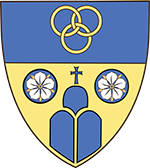How Does One Become a Monk
of Westminster Abbey?
“What can be sweeter to us, dearest brethren, than the voice of the Lord inviting us?
Behold in His loving kindness the Lord shows unto us the way of life.”
– Rule of St. Benedict, Prologue
Stages of Formation
Becoming a monk is a journey that lasts a lifetime. Walking day by day with the Lord and his community a monk passes through various stages that call for a deepening of his commitment to the Good Lord. How does a man begin this journey?
Candidacy
Some candidates are studying in the seminary and enter the monastery from there. Others make known their desire to become a monk while staying in our guesthouse. More commonly, others write for information, inquiring about the possibility of a monastic vocation.
After some correspondence with the candidate, he is invited to visit the abbey and to spend some time, possibly a week or more living, in the guesthouse, praying and working with the monks. If, after several visits over a period of six months to a year, he still wishes to join the abbey, and if he is considered possibly to have monastic vocation by the superiors, he may then ask to begin Postulancy, which lasts for a year.
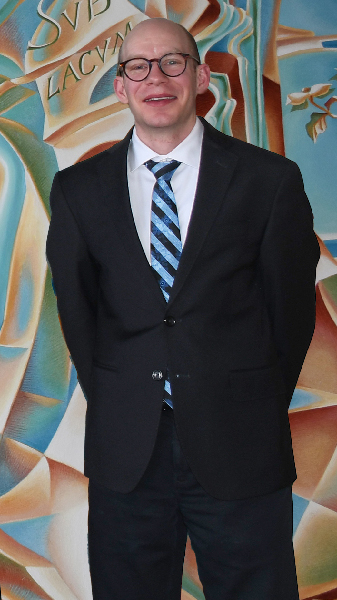
“ Let all the hard and rugged paths
by which we walk towards God be set before him.”
– Rule of St. Benedict, Chapter 58
Postulancy
During this period, the postulant lives with the monks, works, and prays with them and attempts to get to know the community and gives them a chance to know him. Though the postulant is not officially a member of the community yet, the time of Postulancy is a time of discernment, a chance for a man to test his monastic vocation and to have it tested by those experienced in monastic life. St. Benedict instructed the monastic superior to test the new man to see if his vocation is truly of God.
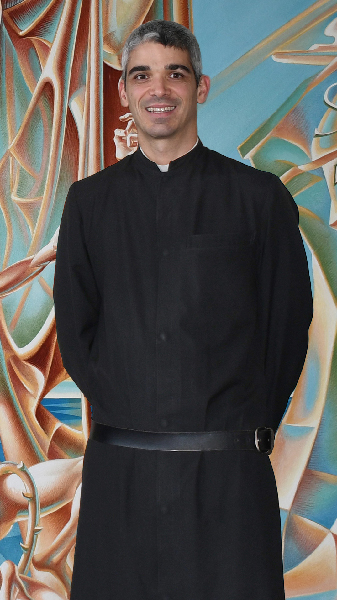
“To him that newly comes to change his life,
let not an easy entrance be granted,
but, as the Apostle says,
‘Test the spirits if they be of God.'”
– Rule of St. Benedict, Chapter 58
Novitiate
After the period of Postulancy, if the postulant wishes to continue and if he is accepted by the community, he then enters the novitiate. The novitiate, which lasts for a year, is a time of prayer, work, study, and spiritual formation. Studies include the Holy Rule of St. Benedict, Benedictine history, Scripture, the Vows, and the laws of the Swiss-American Congregation of which Westminster Abbey is a member monastery.
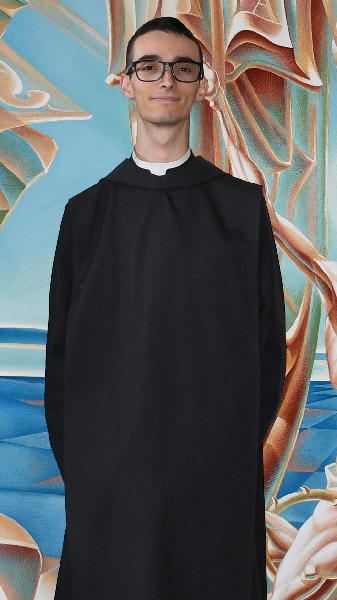
“Turn from evil, and do good; seek peace and pursue it. And when you have done these things, My eyes will be upon you, and My ears will be open to your prayers; and before you call upon Me, I will say unto you, “Behold, I am here.”
– Rule of St. Benedict, Prologue
Temporary Vows
At the end of the novitiate, if the novice wishes to continue, and again if the community accepts him, he is permitted to take his first vows, binding for three years. Benedictine monks take vows of stability, conversation morum (conversion of life) and obedience. By these vows he promises to obey, to live out his monastic life in the monastery he has chosen, and to strive diligently to achieve true holiness. These vows include the traditional vows of chastity and poverty taken by other religious orders in the Church.
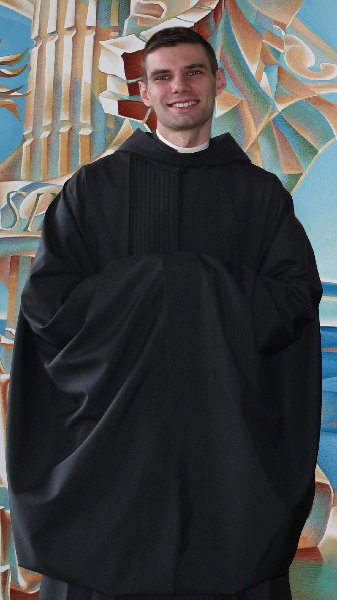
“Uphold me Lord according to your word and I shall live, and let me not be put to shame in my expectation”
– Rule of St. Benedict, Chapter 58
(Psalm 118 [119]:116).
Perpetual Solemn Vows
After three years in temporary vows, he may then be permitted to take his final vows, binding for life.
Those who have been in the seminary follow the same period of formation as mentioned above. Candidates for the priesthood continue their priestly training in the Seminary of Christ the King after their novitiate is completed.
Ongoing Formation
Ongoing formation is a task laid upon both the individual monk and the entire community by our profession (RB 73:2). For some, ongoing formation will include a period of formal education or training in a trade at home or abroad, in view of the community’s apostolic undertakings. For each, however, ongoing formation means applying himself to regular personal study and renewal, in keeping with his own capacity, so as to fulfill well his responsibilities and to bring his gifts to fruition for the community. Formation in the community lasts until death.

